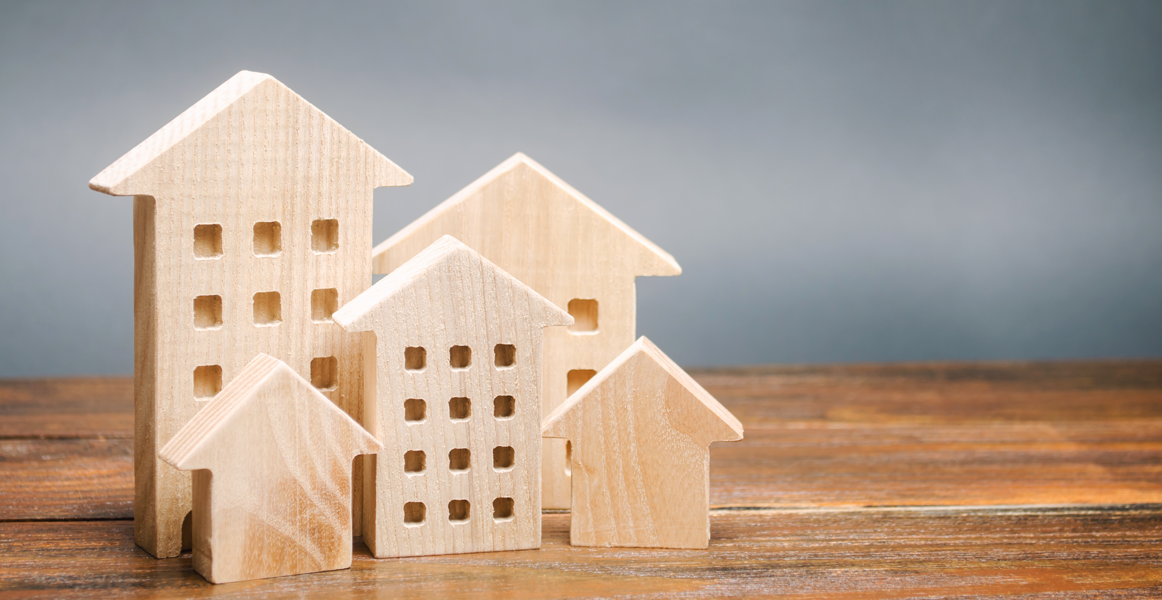What is a maisonette?
What’s a Maisonette?
The term maisonette varies wherever you are in the world. Originating from the French word for "little house," a maisonette can even mean holiday cottages in some parts of Europe. In the UK, however, a maisonette typically refers to a self-contained, two-floor flat within a larger building, featuring its own entrance and staircase. Maisonettes are most often to be found in converted period houses or above shops in town or city centres.
In Scotland, a maisonette is a group of duplex flats arranged on top of each other within a housing block, accessed through a communal entrance. In the US, the term is synonymous with duplexes, usually the upper floors of high-rise buildings, which we might know more commonly as penthouses.
Register today! Be amongst the first to see new listings and off-market homes for sale in your area.
Maisonette vs House: What's the Difference?
While maisonettes share similarities with houses, such as having private entrances and sometimes gardens, there are key differences.
- Size: Maisonettes generally have fewer bedrooms, often limited to two, whereas houses can offer up to five bedrooms, along with additional attic space.
- Cost: Maisonettes tend to be more affordable than houses, making them an attractive option for first-time buyers.
- Layout: Both have living spaces spread over two floors, but maisonettes are typically part of a larger building, whereas houses are standalone properties.
- Outdoor Space: Maisonettes may include private gardens and garages, much like houses, but the available space is usually smaller.
Maisonettes vs Flats: Key Differences
Maisonettes differ from flats in several important ways:
- Entrance: Maisonettes have their own private entrances that lead directly outside, whereas flats are accessed via shared corridors and entrances.
- Layout: Maisonettes span two levels, similar to houses, while flats are contained on a single level.
- Outdoor Space: Flats rarely offer private outdoor areas, and any outdoor space is usually communal. In contrast, maisonettes often come with their own gardens, which can be exclusive to the residents.
Are Maisonettes Leasehold or Freehold?
Understanding whether a maisonette is leasehold or freehold is crucial when considering this type of property. A leasehold maisonette requires payment of ground rent to the freeholder, with costs varying annually. Generally, there are no service charges unless there's communal outdoor space to maintain.
In some instances, purchasing a maisonette includes acquiring the freehold of the entire building. This scenario is common in converted period buildings with two maisonettes, where the occupant of one maisonette pays ground rent to the owner of the other.
Ownership responsibilities also differ from those of conventional flats or houses. For example, if you occupy the first-floor maisonette, you're responsible for the roof and guttering, while the ground-floor owner handles the foundations. Both parties typically share the maintenance of communal areas and external features like driveways and exterior walls.
Maisonettes: To Buy or Not to Buy
Benefits:
- Affordability: Maisonettes are generally cheaper than houses, making them an excellent option for first-time buyers, offering more space than a flat at a lower price.
- Unique Living Spaces: Unlike uniform flats in a block, maisonettes are often part of converted buildings, offering unique layouts and specifications.
- Additional Storage: Many maisonettes come with exterior storage solutions such as garages, which are rare in flats.
Drawbacks:
- Expansion Limitations: Unlike houses, maisonettes don't benefit from Permitted Development Rights, meaning any major home projects require planning permission and are subject to approval.
- Limited Space: Maisonettes might not be ideal for growing families as they typically offer less living space compared to houses.
- Shared Responsibilities: Maintenance of shared areas and external features requires cooperation with other property occupants, which can be challenging.
- Noise and Smells: Maisonettes above shops or businesses might experience disturbances from below, especially if located above catering establishments. Visiting the property at various times can help gauge the impact.
Is Living in a Maisonette Right for You?
Coming to the decision as to whether a maisonette suits your needs will largely depend on how much size you are looking for in a property. The idea of a leasehold property may not be very appealing to some people. For many first-time buyers, a maisonette offers a manageable space at a more affordable price. However, for those needing more space or planning large-scale expansions, a traditional house or bungalow might be more suitable.
We’re here to help at Darlows
At Darlows, we’re committed to helping you find the perfect home. Reach out to us today, and we'll assist you every step of the way. Contact your local Darlows branch for expert advice and support.








